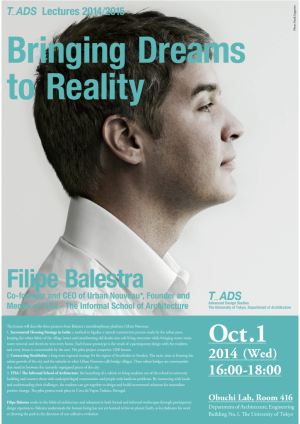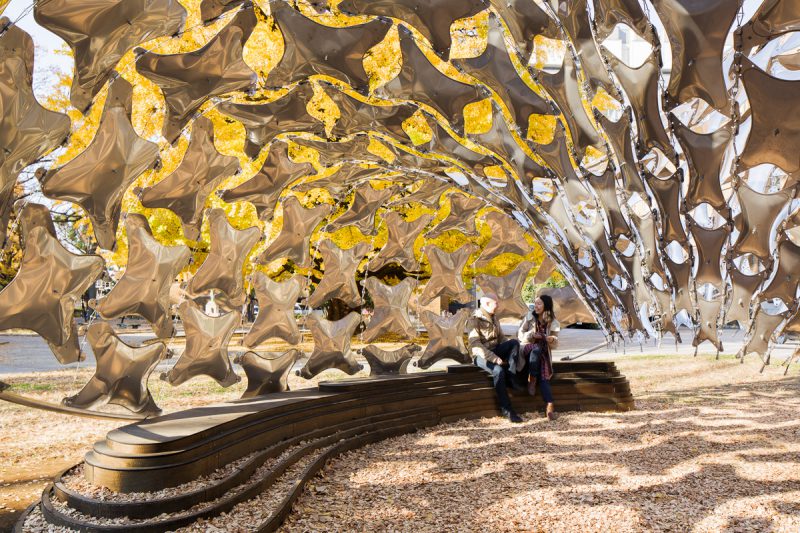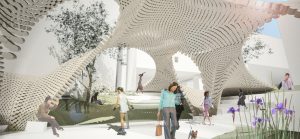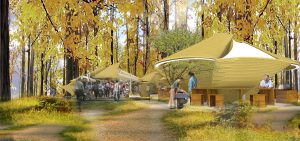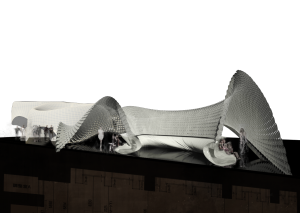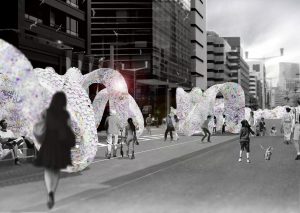The lecture will describe three projects from Balestra’s interdisciplinary platform Urban Nouveau: 1. Incremental Housing Strategy in India: a method to legalize a natural construction process made by the urban poor, keeping the urban fabric of the village intact and transforming old shacks into safe living structures while bringing water, waste water removal and electricity into every home. Each house prototype is the result of a participatory design with the residents and every home is customizable by the user. The pilot project comprises 1200 houses. 2. Connecting Stockholm: a long term regional strategy for the region of Stockholm in Sweden. The tactic aims at framing the urban growth of the city and the suburbs in what Urban Nouveau calls bridge villages. These urban bridges are communities that stand in between the currently segregated pieces of the city. 3. TISA / The Informal School of Architecture: the launching of a vehicle to bring students out of the school or university building and connect them with underprivileged communities and people with hardcore problems. By interacting with locals and understanding their challenges, the students can get together to design and build incremental solutions for immediate positive change. The pilot project took place in Cova do Vapor, Trafaria, Portugal.
Filipe Balestra works in the fields of architecture and urbanism in both formal and informal workscapes through participatory design experiences. Balestra understands the human being has not yet learned to live on planet Earth, so he dedicates his work to drawing the path in the direction of our collective evolution.
10月1日、16:00より東京大学工学部1号館416号教室にて、Urban Nouveau*を主催する建築家フィリップ・バレストラ氏によるレクチャーを行います。Urban Nouveau*でのプロジェクトを中心に紹介します。
フィリップ・バレストラ 1981年ブラジル生まれ、建築家。ストックホルム王立工科大学終了後、リオデジャネイロのスラムにて小学校を建設するプロジェクトや、インドのスラム街を現地NGO、住民とともにプラン策定、改修するプロジェクト”incremental housing”を運営する。主な業績に、TED イェーテボリ出演、ストックホルム建築博物館にて展覧会”connecting stockholm”開催など。掲載誌多数。
Digital Fabrication Lab Pavilion, 2013
Design Team:
The University of Tokyo teaching staff: Yusuke Obuchi, Toshikatsu Kiuchi, So Sugita, Hironori Yoshida
The University of Tokyo students: Christopher Sjoberg, Yeonsang Shin, Miguel Puig, Zhang Ye, Ana Luisa Soares, Ma Sushuang, Tong Shan, Andrea Trajkovska, Quangtuan Ta, Wei Wang, Anders Rod, Benjamin Berwick, Qiaomu Jin, Fawad Osman, Yanli Xiong, Andrea Bagniewski, Kevin Clement, Ornchuma Saraya, Minjie Xu
Obayashi Corporation: Tomoo Yamamoto, Kenichi Misu, Gendai Ono, Yasuo Ichii, Keisuke Fujiwara, Shunsuke Niwa, Tatsuji Kimura, Masaru Emura, Taiki Byakuno, Takahide Okamoto
Structural engineer: Jun Sato
Fabrication of components: Tsukasa Takenaka (AnS Studio)
Construction: Multibuilder
Fabrication: Togari Kogyo
Structure: Freeform Surface Tensegrity Structure
Specifications:
Compressive components: stainless steel plates with 0.5 mm / 0.8 mm / 1.2 mm / 1.5 mm thickness
Tension cables: stainless steel cables in 3 mm diameter
Base ring: stainless steel pipe in 48mm diameter
Foundation: precast concrete blocks
Furniture: painted plywood
Weight: 1.5 t (upper structure in stainless steel), 1 t (concrete foundation)
Design Phase: October 2012 – March 2013
Design development, fabrication & construction: April – November 2013
Completion date: 24 November 2013
Students
- Kyaw HTOO
- Ana ILIC
- Yasemin SAHINER
Professor
- Yusuke OBUCHI
Collaborate Professors
- Jun SATO
- Futoshi KURISU
Course Assistants
- Toshikatsu KIUCHI
- So SUGITA
Computational Support
- Masaaki MIKI
Students
- Wang LIN
- Wang CHONG
Professor
- Yusuke OBUCHI
Collaborate Professors
- Jun SATO
- Takafumi NOGUCHI
- Ryoma KITAGAKI
Course Assistants
- Toshikatsu KIUCHI
- So SUGITA
Computational Support
- Masaaki MIKI
Students
- Xuhao LIN
- Dasom LEE
- Shuang LI
Professor
- Yusuke OBUCHI
Collaborate Professors
- Jun SATO
Course Assistants
- Toshikatsu KIUCHI
- So SUGITA
Computational Support
- Masaaki MIKI
Students
- Guillaume DUMONT
- Maria LARSSON
- Dejan MOJIC
Professor
- Yusuke OBUCHI
Collaborate Professors
- Jun SATO
- Masayuki Mae
Course Assistants
- Toshikatsu KIUCHI
- So SUGITA
Computational Support
- Masaaki MIKI

